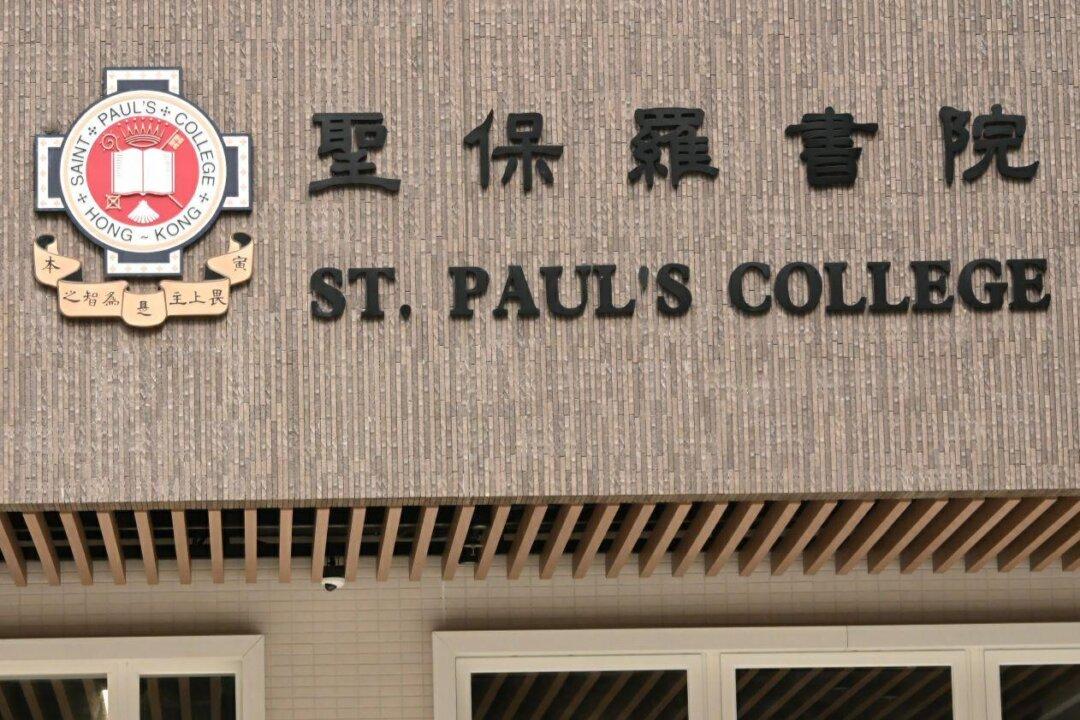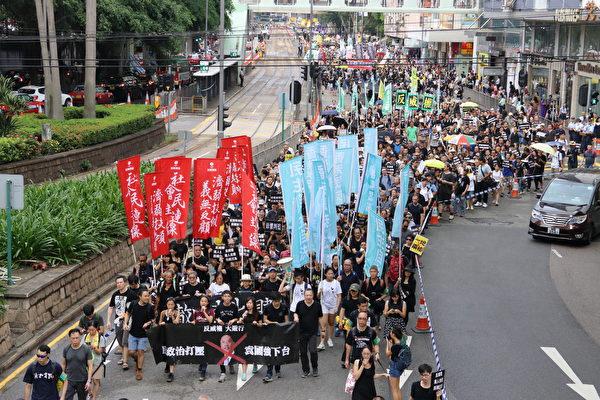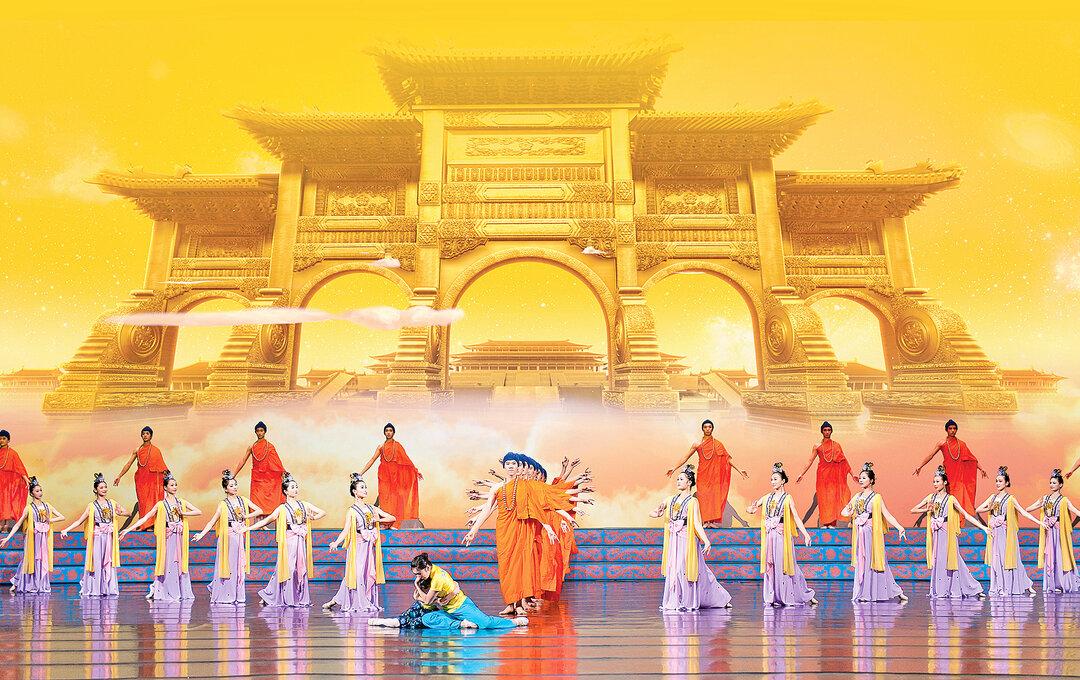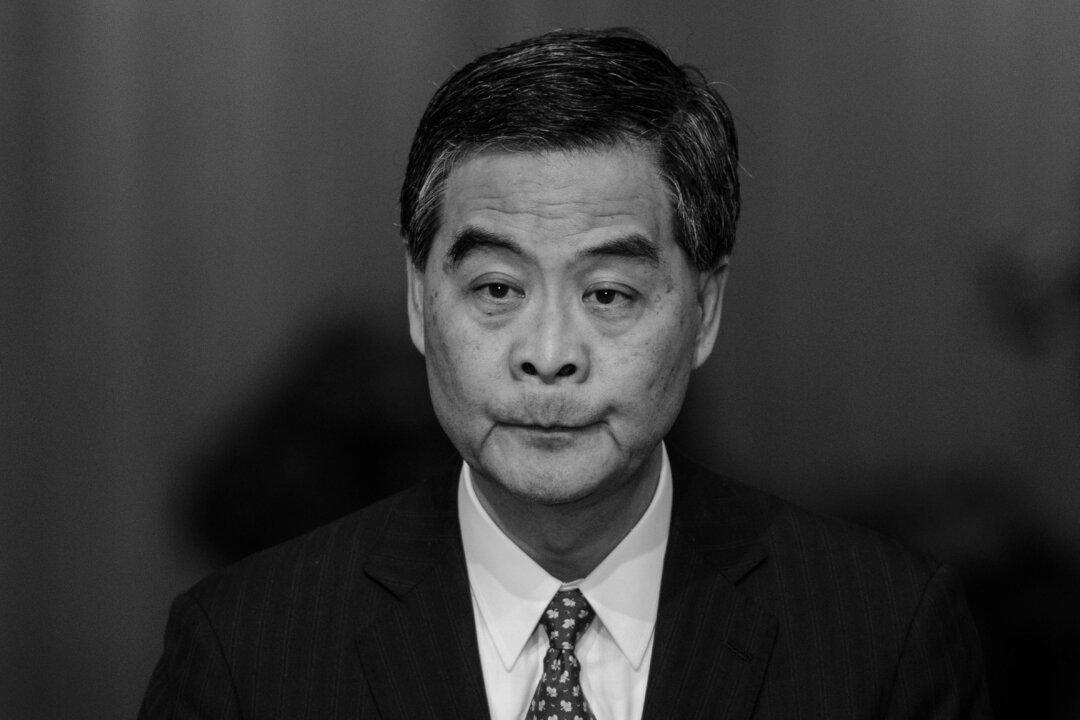Nomination for the new Hong Kong Legislative Council (LegCo) elections is taking place on July 16-29, and the election will be held on Sept 4, 2016.
A total of 70 members will be elected, 35 from the geographical constituencies and 35 from the functional constituencies. This year, a large number of veterans will retire and be replaced by many new faces.
The pan-democracy camp, the post-Umbrella Movement camp, and the pro-Beijing camp held their respective rallies last week, opening the curtain on the election battle early.
Observers pointed out that in addition to the anti-Leung Chun-ying movement, other areas of concern include the current intense power struggle in Beijing, signs of the breaking up of the pro-Beijing camp, under the pressure coming from the Central Commission for Discipline Inspection (CCDI), and whether that will impact the ability of the Liaison Office to manipulate the election results.
The Democratic Party released a list of eight candidates, including veteran members of LegCo, Sin Chung-kai, Emily Lau Wai-hing, and Albert Ho Chun-Yan, who were all ranked second on the geographical Constituencies nomination lists. They will be supporting the new candidates Ted Hui Chi-fung, running for Hong Kong Island, as well as Andrew Wan Siu-kin and Lam Cheuk Ting, who will be running for seats in New Territories West and New Territories East, respectively.
Meanwhile, Roy Kwong and James To Kun-sun will be contesting seats in the District Council (Second) Functional Constituency.
The Democratic Party said the election is one that will affect generations and poses the toughest challenge to the party since its inception.
Ranking first in the nomination list of the New Territories East district is Lam Cheuk Ting, a District Coucilor for North District. He said that he made the right decision several years back to leave the Independent Commission Against Corruption (ICAC) and return to the Democratic Party.
He said that since Leung Chun-ying became the Chief Executive of Hong Kong, the society has deteriorated rapidly.
“In these few years, we see that Hong Kong is unable to differentiate right from wrong or good from bad, it is full of conflicts of interest, and it has serious corruption problems. That shouldn’t be the case,” Lam said. “Hong Kong should be a free, uncorrupted, and fair society, right? Since Leung Chun-ying took charge, Hong Kong is getting worse; even the ICAC may not be able to defend itself.”
Lam urged voters to unite to fight for true universal suffrage.
Martin Lee, the founding chairman of the Democratic Party, said that Hong Kong ranks first in the world when it comes to localism. He said that localism is not violent, just like the democratic Umbrella Movement advocates the spirit of love and peace.
“During the most challenging times, we must firmly believe in our convictions, and we must not be bothered by how others see us. If we turn away from our principles and become so-called politically correct, our loyal supporters will turn away from us. So, in the toughest moment, we must stand firmly on our positions,” Lee said.
In addition to the pan-democratic front, other local forces, such as post-Umbrella Movement groups and the Valiant Front, have announced their candidates for the LegCo election as well. This has increased the uncertainties of the election outcome.
Meanwhile, the Neighbourhood and Workers Services Centre has sent two teams to run in the election. LegCo member Leung Yiu-chung will be running for District Council (Second) Functional Constituency, whereas Ivan Wong Yun Tat, Councilor of Kwai Tsing District, will be contesting in New Territory West.
Anti-Leung voices
Leung Yiu-chung emphasized that their aim is to break the political hegemony and stop the re-election of Leung Chun-ying.
“The important task in the coming period is to do all we can to stop him from being re-elected,” Leung Yiu-chung said.
This year’s election in the Hong Kong Island district is very competitive. Besides Ricky Wong, who made a bang with his anti-Leung stance, another contester for the constituency is Tanya Chan Suk-chong, who launched the first rally of the Civic Party.
Chan disagrees with those who merely come to the election with slogans opposing Leung Chun-ying.
“We will not satisfy ourselves with kicking away 689,” Chan said, using a nickname for Leung. “What we want is a more democratic system, and true universal suffrage is our ultimate goal. I would like to throw everyone a question: are those who will vote for Article 23 among us?”
Article 23 was a controversial anti-subversion law proposed by Beijing with the goal of silencing anti-CCP voices in Hong Kong in 2003. The article met with controversy and protests and was eventually withdrawn. But Ricky Wong although pushing for “Anyone but CY Leung” (ABC) includes in his election policy statement that he supports passing Article 23 for the web.
Tanya Chan said that once in parliament, one is duty-bound to kick out Leung. She emphasized the responsibility to let the central government know the people’s hope for universal suffrage, and to subvert the Aug 31, 2014 decision by the National People’s Congress that denied Hong Kong people true universal suffrage.
“Restarting a negotiation for political reform and seeking to overturn the 8/31 decision are of course not aimed at 689 alone. They are suggestions for the long term democracy of Hong Kong,” Chan said. “As long as the barrier of the 8/31 decision is not removed, I can see that the messy situation in Hong Kong will only become more and more difficult to solve.”
Other groups
ALLinHK, an electoral alliance formed by various groups after the Umbrella Movement, announced three teams for election. However, Youngspiration founder Baggio Leung Chung-hang, who has expressed interest in running for the seat of the Hong Kong Island district, has decided not to participate in the election.
He claimed that due to financial restraints, the party will focus their resources in districts in which they are more confident.
The alliance pledged to resist the fierce flooding of communism into Hong Kong and to foster the national consciousness of independent democracy.
As for the pro-Beijing camp, LegCo member Priscilla Leung Mei-fun has announced that she will run for the seat in Kowloon West. Along with several others, she is known as an “adopted child of Sai-Wan,” a nickname for candidates approved and supported by the Liaison Office of the Central People’s Government.
When asked whether she had the support of the Liaison Office, Leung said that she had informed the office of her candidacy. However, when asked whether she would support the current Chief Executive for re-election, Leung declined to reply.
Pro-Beijing faction
This year’s LegCo election is seen as a prelude to 2017 Chief Executive election. Not only are the veteran Democratic Party and local groups against Leung Chun-ying, but even the pro-Beijing faction does not want or dare to support Leung.
Chim Pui-chung, a former legislator representing the Financial Services Functional Constituency, claimed that after he was elected, he would launch an investigation regarding Leung’s acceptance of HK$50 million in a deal with the Australian company UGL.
Within the pro-Beijing faction, there has been news of disintegration from time to time. For instance, Christopher Chung Shu-kun from the Democratic Alliance for the Betterment and Progress of Hong Kong once said that he might leave the party to run as an independent candidate.
Another member from the same party, Wong Yung-kan, a former LegCo member representing the Agriculture and Fisheries functional constituency, also claimed that he might run for this position as an independent against incumbent legislator Steven Ho Chun-yin from the Democratic Alliance.
Ricky Wong has said that now is not the time to differentiate between the pan-democracy or pro-Beijing factions, but to be anti-Leung or pro-Leung.
Liaison Office’s influence
Another highlight of the LegCo election is the CCP’s attitude towards the election.
Beijing released an announcement on June 22 that the Hong Kong and Macau Affairs Office (HKMAO) will be reviewed by the CCDI. The Liaison Office is directly under the HKMAO.
In the past, the Liaison Office used vote allocation and influenced the elections. Since the office is under investigation, it may no longer have the ability to influence elections.
Xin Ziling, a researcher on the CCP’s history, commented on the significance of the investigation.
First, Xin said, they [CCDI] will figure out who can be used and who are the guilty ones among the HKMAO officials. Secondly, they will clarify certain matters with these officials.
Xin believes the investigation is an important signal for Beijing to abandon Leung.
In an interview on July 7, LegCo president Jasper Tsang quoted Beijing officials as saying that the candidates for the 2017 Chief Executive election “will not be hand-picked”.
This has been viewed as the central government expressing the position that it will not give special care to Leung.
Transition
“Hong Kong is facing a transition period, and its political forces are characterised by fragmentation,” said associate sociology professor Chan Kin Man.
“The situation for the non-pro-Beijing faction is more serious than for the pro-Beijing faction. This is because the pro-Beijing faction has the support of the Sai Wan [Liaison Office],” Chan said.
According to Chan, changing the Chief Executive is the consensus of the majority; however, the pro-democracy camp does not only want to change the Chief Executive, but also to change the system.
Translated by SQ Wu and Benjamin Ng. Edited by Sally Appert.




